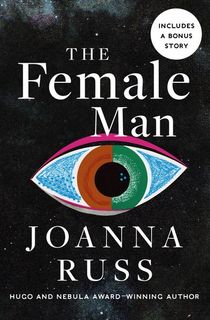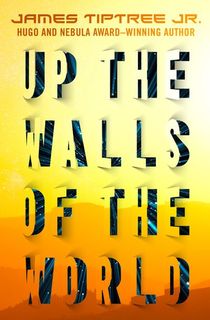Speculative fiction has always been a safe space for authors to imagine non-normative worlds and alternate ways of being. Be it homosexuality, gender fluidity or xenobiology, science fiction and fantasy allow readers and authors to inhabit different kinds of bodies—bodies that may not always accessible in the real world.
Earlier on, it was more common to explore taboo topics by means of allegory, such as monsters being a manifestation of repressed urges or desires, as seen in the case of vampires and werewolves. For instance, Carmilla (1872) by Sheridan Le Fanu is widely considered as the first lesbian vampire story, while most of the books in Anne Rice’s celebrated Vampire Chronicles bristle with homoerotic tension. And with increased awareness and changes in societal attitudes, it isn’t that hard to find stories with diverse protagonists—navigating the perils of gender dysphoria or the excitement of being in a polyamorous relationship while also battling aliens or saving the world.
So, if you’re interested in SFF that thoughtfully engages with issues pertaining to gender and sexuality, we have some recommendations for you—featuring not just New Wave SF classics but contemporary publications as well—to pique your curiosity.

Ancillary Justice
The first entry in Leckie’s impressive Imperial Radch trilogy, Ancillary Justice is a richly rewarding read that examines gender, race and economics, through the narrative of the soldier Breq who’s out for revenge. Breq was formerly the Justice of Toren—her human body anchored to the artificial intelligence of a giant sentient starship—but now she’s stuck in her fragile body, having lost her connection to the ship’s hivemind. It’s a deep-dive into the terrifying inner workings of a military empire but it’s also a lot of insane fun. So, if you’re in the mood for a challenging space opera that doesn’t spoon-feed its readers, this critically acclaimed novel is for you.

The Left Hand of Darkness
First published in 1969, Ursula Le Guin’s The Left Hand of Darkness was a landmark work of science fiction that put questions of gender, sexuality and alternate biology to the forefront. The novel is part of the author’s Hamish Cycle, and narrates the story of Genly Ai, a human ambassador who is sent to the planet of Gethen. But the inhabitants of Gethen are nothing like the people Ai’s familiar with. They are ambisexual, without any fixed gender or sex—and thus, Ai initially has a hard time understanding their culture. Ambitious, imaginative and wildly engrossing, The Left Hand of Darkness is a book that will definitely inspire discussion and debate once you’ve finished it.

Trouble on Triton
Delany’s novels are splendidly imaginative, tackling complex themes and ethical conundrums in thoroughly fascinating ways such as Dhalgren, Babel-17 and Nova; and Trouble on Triton is no exception. Subtitled An Ambiguous Heterotopia, the novel is actually in conversation with Le Guin’s anarchist SF novel, The Dispossessed. It is set in a world where gender and sexuality are both fluid and inhabitants have access to technology to modify their bodies and proclivities as they see ft.

Venus Plus X
An underrated classic from the 60s, Theodore Sturgeon’s Venus Plus X powerfully imagines an alternate civilization that has got rid of sexual differences and there is no tension between males and females. Like with The Left Hand of Darkness, the story is mediated through an outsider—one Charlie Johns suddenly finds himself in a strange future, struggling to make sense of this advanced society. Though some of its commentary on gender may feel dated by today’s standards, it’s still an intriguing read that traces how conversations on gender and sexuality have evolved over the years.

The Long Way to a Small, Angry Planet
If you’re looking for a sci-fi series filled with diverse and queer characters but where queerness isn’t the central focus of the narrative but just another normalized element of that fictional world, you’ll love Becky Chambers’ books. They are cozy, character-driven and packed with stunning worldbuilding. The first book, The Long Way to a Small, Angry Planet follows a rag-tag found-family crew on crazy wormhole-tunneling jobs. All the characters, be it the aliens or humans, are carefully sketched with redeemable flaws and memorable attributes.
It’s perfect feel-good fiction when you’re in desperate need of a hug, and if you’ve enjoyed The Wayfarers series, you should also check out The Monk and Robot novellas by the same author that feature a non-binary protagonist and low-stakes storytelling.

The Female Man
This one too might be considered dated, but it’s one of the early examples of feminist sci-fi that addresses the patriarchy head-on, investigates gender inequality, and envisages alternate utopias for women. The story follows the interconnected lives of four women, each inhabiting a parallel universe in a different time and space. While two of the worlds are similar to Earth, Russ also describes an all-female utopia as well as a dystopia where men and women are in constant conflict. Searing and provocative, The Female Man played a critical role in challenging the sexism in the industry of that time.

Up the Walls of the World
James Tiptree Jr. is one of the most iconic figures of 20th century SF. For decades, she published under a male pseudonym and received acclaim for her works, and her “gender reveal” to the public took everyone by surprise. As a woman writing in a male-dominated field, her tales often address gender disparities as well as alternate forms of sentience. In Up the Walls of the World, she imagines a world where psychic phenomena (such as telepathy) are real and describes a gritty alien invasion of Earth. From telepathic beings to intelligent aliens and other strange entities, this otherworldly novel promises to be an “out-of-the-body” experience.



